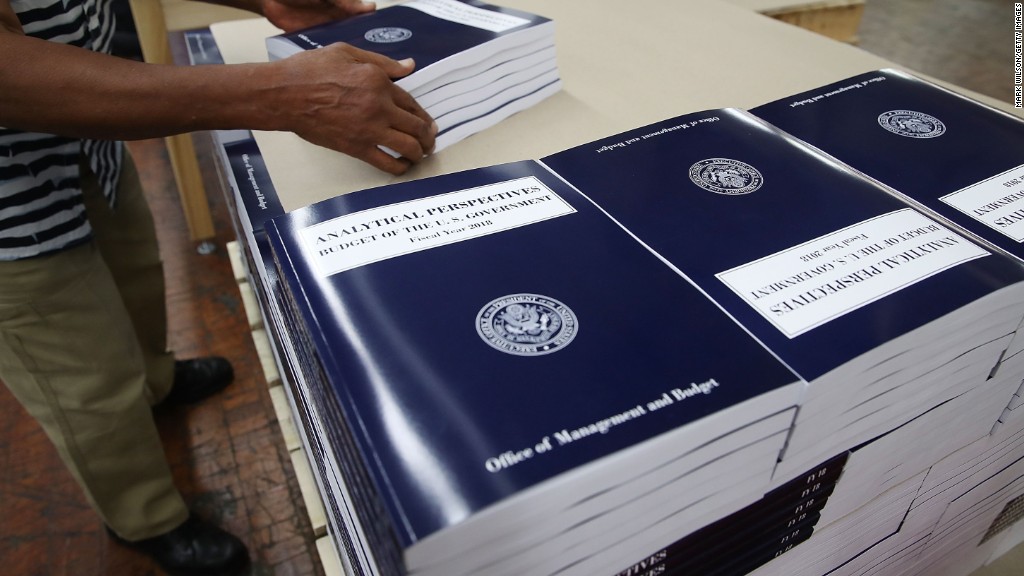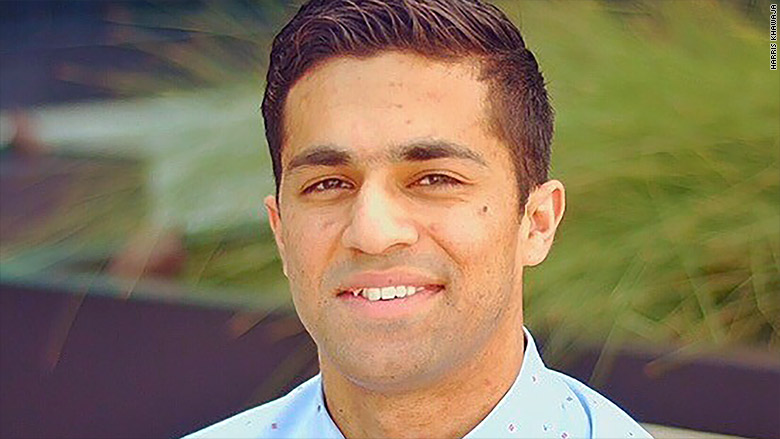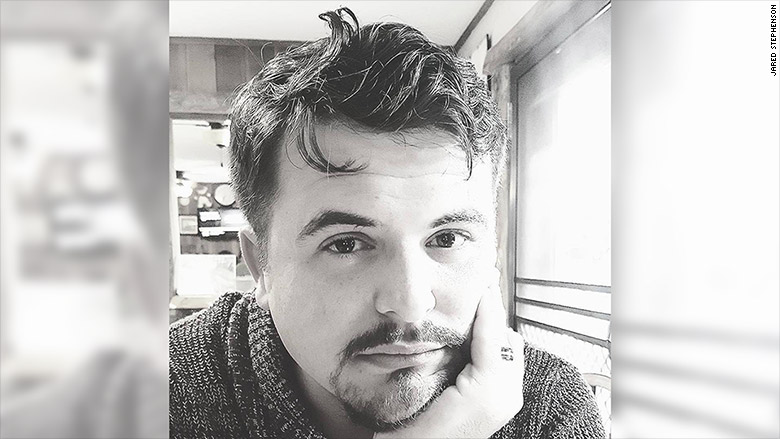
Pediatricians. Doctors at veterans hospitals. Public defenders. Legal aid lawyers.
They earn less than their colleagues in the private sector, but they can have just as much student debt.
"I could have chosen to work for a big law firm and make six figures, but I wanted to make a difference in real people's lives," said Jared Stephenson, a public defender for Orange County, California.
What made it possible for Stephenson to turn down a bigger paycheck with $200,000 of debt hanging over his head was the government's Public Service Loan Forgiveness program. It promises to cancel remaining debt for those who work for the government or nonprofit organizations after they make 10 years of on-time payments.
But President Trump and Education Secretary Betsy DeVos want to end that program. Their proposed budget, released last week, calls to eliminate the Public Service Loan Forgiveness program for new borrowers. The cut, which requires an act of Congress, would save $27.5 billion over 10 years if enacted, according to the White House.
In a statement, DeVos said the budget (which would cut 13.5% from the overall department next year) "ensures funding for programs with proven results for students while taking a hard look at programs that sound nice but simply haven't yielded the desired outcomes."
When it was enacted in 2007, the Public Service Loan Forgiveness program was intended to encourage people to enter public sector jobs. More than 400,000 people have enrolled since it was created, but no one will receive forgiveness until this October, when the first wave of borrowers will have made 10 years of payments.
For many people, the forgiveness program wasn't the main reason they chose a career in public service, but it was a significant factor.
"The Public Service Loan Forgiveness program made us feel like the government had our backs for going into a field purely for the love of treating patients over chasing the bloated salaries of other fields of medicine just to have financial security," said Harris Khawaja, a first-year pediatrics resident at a teaching hospital.
Pediatrics is the lowest paid medical specialty. They can expect to earn about $200,000 less than some of the highest paid specialties, like orthopedics and cardiology in which physicians can earn more than $400,000 a year.

Related: What's not in the budget for student loan borrowers
The forgiveness program has been used as a recruitment tool for non-profit employers, said Matthew Shick, Director of Government Relations at the Association of American Medical Colleges.
About one-third of medical school graduates said they were planning to apply for public service forgiveness, according to an AAMC survey of the class of 2016.
Medical school leaves students with an average of $190,000 in debt. While they can make a lot of money eventually, it's a slow start. After four years of school, they then have three to seven years of residency during which they typically receive an average annual stipend of $54,000.
Advocates say it's also an incentive for attorneys, who graduate with an average of $127,000 in debt, according to the American Bar Association.
"Without loan forgiveness, fewer people would be able to dedicate their lives to public service as prosecutors, public defenders, legal aid lawyers and other justice-related fields, especially in underserved rural areas," said ABA President Linda Klein, in a statement.
Stephenson became passionate about helping those underprivileged and forgotten individuals that come through a public defender's office while interning during law school.
"Whether it's the homeless, the drug addicted, or the mentally ill, I came to love doing my part to try to improve the lives of the scorned," he said.

Public interest lawyers and those who work for the government can expect to earn much less than attorneys who go into private practice. In 2015, graduates landed private jobs that paid starting salaries close to $100,000, while those in the public sector earned under $60,000 on average, according to the National Association for Law Placement.
Related: I voted for Trump. Now he wants to cut the aid I need
It's not just the student loan borrowers who would get hurt if the forgiveness program gets cut, said Schick at the AAMC. "It's about the patients served by the program, too," he said.
Some critics say the program is redundant. Without it, borrowers can still seek loan relief through an income-driven repayment program, which promises to cancel debt after 25 years for graduate students.
But here's where the DeVos budget is a double whammy for public service workers with advanced degrees. Not only does it propose eliminating the public service forgiveness program, but it revamps the income-driven repayment system so that graduate borrowers need to pay for 30 years before seeing debt relief.
Related: Trump budget proposes 40% cut to job training programs
Since graduate students can currently borrow an unlimited amount of money from the government and ultimately have remaining debt forgiven, critics claim many are getting their advanced degrees on the taxpayers' tab.
The proposed overhaul of the income-driven repayment plan is a sweeter deal for undergraduate students. It shortens the numbers of years before loan forgiveness from 20 to 15. It would, however, raise the monthly payment from 10% of discretionary income to 12.5%.
"These reforms will reduce inefficiencies in the student loan program and focus assistance on needy undergraduate student borrowers instead of high-income, high-balance graduate borrowers," the budget says.
For Khawaja, the pediatric resident, there's still the temptation of private practice. But his passion has always been in academic medicine and research.
"If it ever was about the money for me, I wouldn't have chosen pediatrics. But it is what I love to do," he said.
